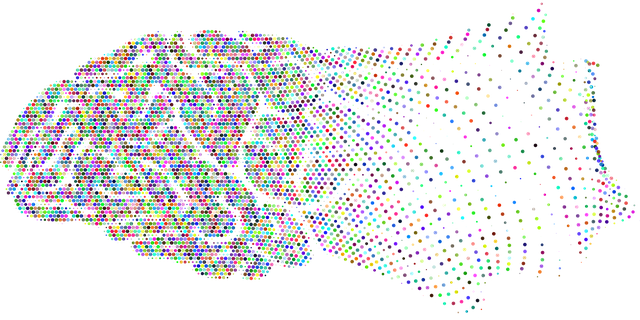Mental health policy advocacy is vital to address barriers, like stigma, preventing access to quality care for conditions such as Boulder Oppositional Defiance Disorder (BODD). By educating the public and professionals about BODD symptoms and evidence-based therapies like cognitive-behavioral therapy, advocates drive policy changes. Evaluating program effectiveness helps guide improvements, ensuring better outcomes. Advocacy strategies include raising awareness, promoting mental wellness, advocating for funding and provider support, and encouraging early intervention techniques to revolutionize mental health services for BODD sufferers across diverse communities.
Mental health policy analysis and advocacy are vital components in creating supportive systems for individuals grappling with psychological challenges, including Boulder Oppositional Defiance Disorder (BODD). This article offers a comprehensive overview of mental health policy, exploring key aspects such as the impact of stigma on policy formation and evaluating existing programs. We delve into effective advocacy strategies to enhance access to therapy for BODD, ensuring support for those in need. By understanding these dynamics, we can drive positive change in mental healthcare systems.
- Understanding Mental Health Policy: A Comprehensive Overview
- The Impact of Stigma and Its Role in Policy Formation
- Analyzing Existing Mental Health Programs and Their Effectiveness
- Advocacy Strategies for Better Mental Healthcare Access and Support for BODD (Boulder Oppositional Defiance Disorder)
Understanding Mental Health Policy: A Comprehensive Overview

Mental health policy is a complex and multifaceted area that encompasses various strategies and interventions aimed at improving access to quality care for individuals facing mental health challenges. It involves a deep understanding of the social, cultural, and economic factors influencing mental well-being, as well as the development and implementation of evidence-based practices. The focus on mental health policy analysis and advocacy is crucial in addressing the growing concerns surrounding conditions like Oppositional Defiant Disorder (ODD), which often requires specialized therapies such as Boulder ODD Therapy to manage symptoms effectively.
Policy advocates play a pivotal role in shaping public awareness, influencing legislative decisions, and ensuring that crisis intervention guidance, anxiety relief, and burnout prevention services are readily available. By analyzing existing policies and their impact on vulnerable populations, stakeholders can identify gaps and advocate for systemic changes. This proactive approach is essential in creating a supportive environment where individuals with mental health disorders receive the necessary support, treatment, and resources to lead fulfilling lives.
The Impact of Stigma and Its Role in Policy Formation

Stigma remains a formidable barrier to accessing mental health services and support, with profound implications for policy formation. Often rooted in misconceptions and fear, this societal stigma creates an atmosphere where individuals struggling with conditions like Oppositional Defiant Disorder (ODD) may face judgment, discrimination, or even ostracization. Such negative perceptions can deter people from seeking the help they need, leading to exacerbation of symptoms and reduced quality of life. In response, mental health policy advocacy has increasingly focused on challenging these damaging stereotypes and promoting understanding through education campaigns and inclusive initiatives.
Policy makers are recognizing the need for comprehensive approaches that not only address risk management planning for mental health professionals but also emphasize inner strength development and self-care routine development for individuals seeking therapy. By prioritizing stigma reduction, these policies aim to create a supportive environment where everyone has equal access to evidence-based ODD treatment options, fostering better mental health outcomes for all.
Analyzing Existing Mental Health Programs and Their Effectiveness

When analyzing existing mental health programs, a thorough examination of their effectiveness is crucial. This involves assessing how well these initiatives address specific mental health concerns, such as Boulder Oppositional Defiance Disorder (BODD). By evaluating the impact on symptoms, patient outcomes, and quality of life, advocates can identify successful strategies that enhance mental wellness. Programs focusing on evidence-based therapies, like cognitive-behavioral therapy, have shown promising results in improving self-esteem and promoting positive thinking among individuals struggling with BODD.
Understanding what works and what doesn’t is essential for shaping effective policy advocacy. Mental health advocates can leverage data from these analyses to push for more comprehensive and targeted support systems. This includes securing adequate funding for specialized services, increasing access to care, and ensuring that programs prioritize the unique needs of diverse populations. By addressing gaps and building upon successful models, such as those that foster mental wellness through tailored interventions, communities can create a more robust safety net for individuals dealing with mental health challenges.
Advocacy Strategies for Better Mental Healthcare Access and Support for BODD (Boulder Oppositional Defiance Disorder)

Advocacy plays a pivotal role in shaping mental healthcare policies and improving access to essential services, especially for conditions like Boulder Oppositional Defiance Disorder (BODD). One effective strategy is raising awareness through educational campaigns that target both the public and healthcare professionals. By disseminating information about BODD symptoms, causes, and available therapy options, such as cognitive-behavioral therapy tailored for this disorder, communities can foster understanding and reduce stigma.
Moreover, advocating for policy changes that support mental wellness initiatives is crucial. This includes pushing for increased funding allocation to mental health services, integrating Burnout Prevention Strategies for Healthcare Providers into work environments, and promoting Mental Wellness Journaling Exercises as a self-care tool. Encouraging the use of Conflict Resolution Techniques in schools and homes can also mitigate behavioral oppositional defiance, ensuring early intervention and improved long-term outcomes.
Mental health policy analysis and advocacy are essential components in creating a supportive environment for individuals facing challenges like Boulder Oppositional Defiance Disorder (BODD). By understanding the impact of stigma, evaluating existing programs, and employing effective advocacy strategies, we can push for improved access to quality mental healthcare. This includes specialized BODD therapy, ensuring a comprehensive approach to treatment and support for those in need. Through collaborative efforts, we can navigate policy landscapes to foster a healthier, more inclusive society.














